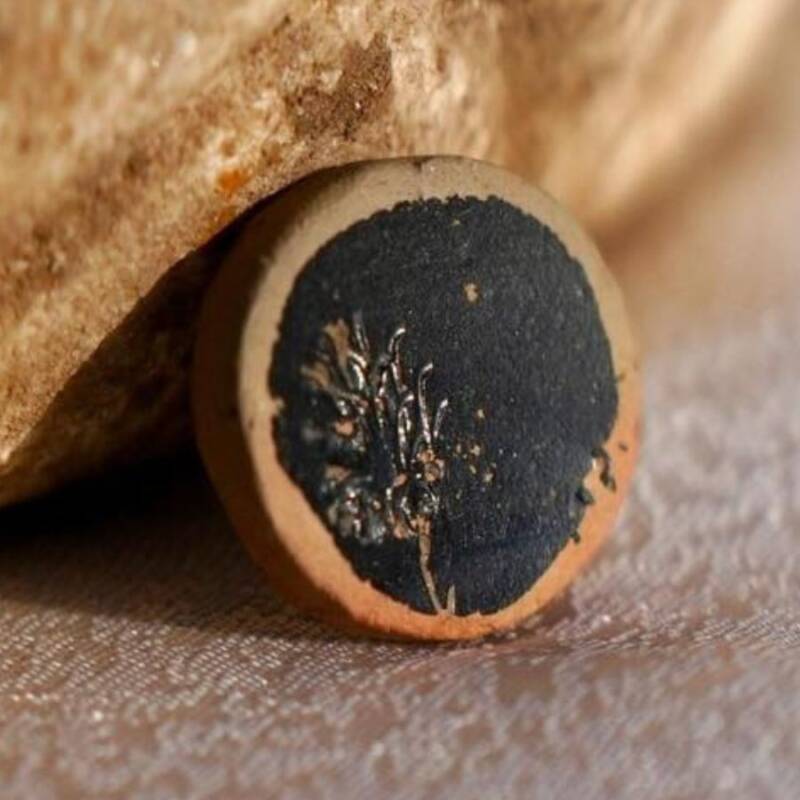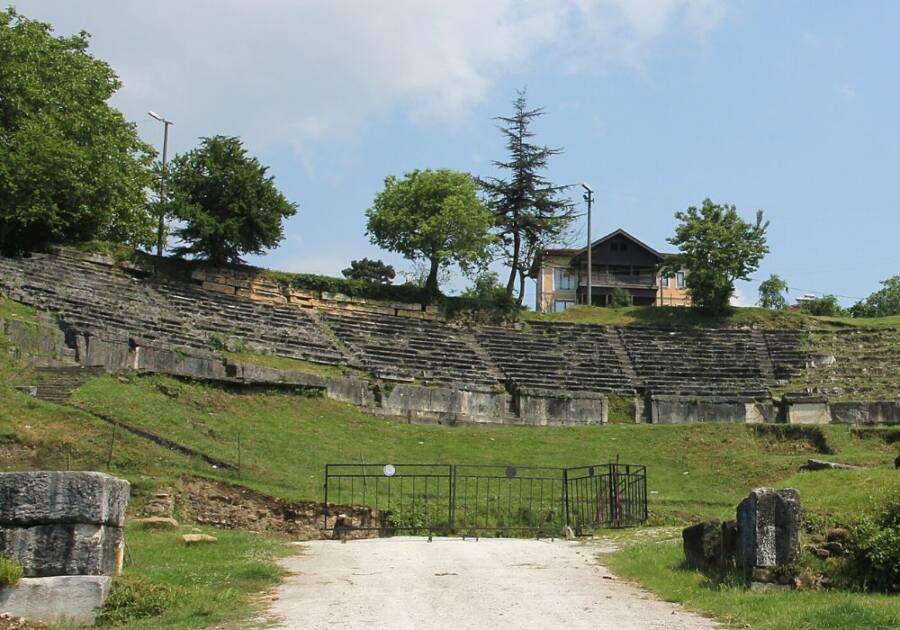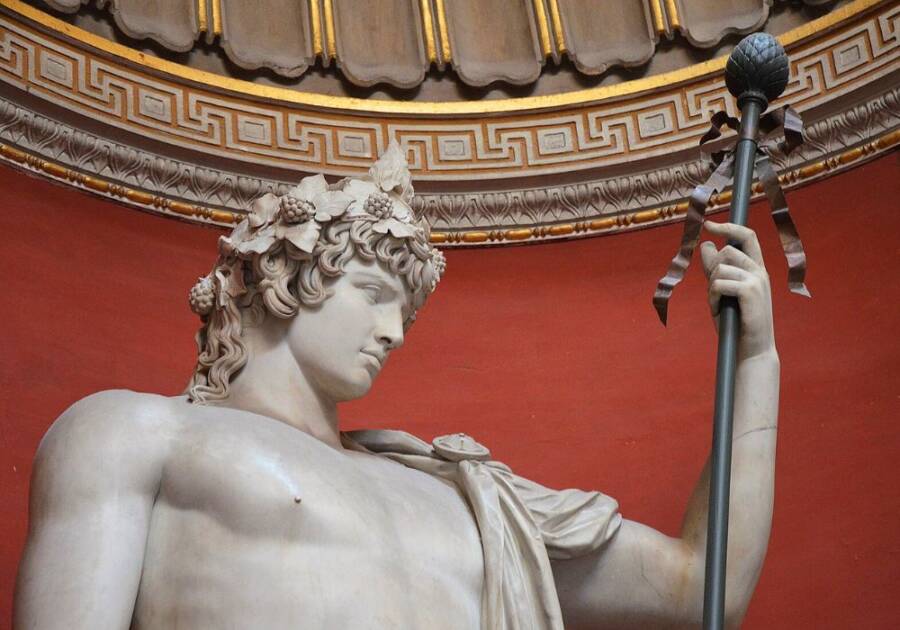The terracotta ticket measures about an inch in diameter and is even engraved with a row number.

Arkeolojihaber/FacebookThe front of the round, clay ticket features a floral motif.
Even 2,000 years ago, people were purchasing tickets to secure their seats for the latest show in town.
Archaeologists excavating an amphitheater in the ancient Roman city of Prusias ad Hypium in northwestern Türkiye just uncovered a remarkable clay theater ticket inscribed with floral designs and even a row number, offering a rare glimpse into the ticketing system used in Roman theaters.
In addition to the ticket, the excavations revealed a wealth of artifacts, including a statuette of Aphrodite and part of a thyrsus, a staff associated with the god Dionysus. These items have survived in “pristine condition” for thousands of years, and they are now providing invaluable insight into the cultural heritage of the region — and officials believe there is still more to uncover.
Archaeologists Find An Ancient Roman Theater Ticket In Türkiye
In 2019, archaeologists began excavating the ancient city of Prusias ad Hypium. Located in northwestern Türkiye, Prusias ad Hypium fell under Roman control around 74 B.C.E., and many structures built during that era remain, such as aqueducts, a bridge, and even an amphitheater. The amphitheater is more than 300 feet long and 240 feet wide and features steps with lion claw designs, vaulted passages, and a stage, all of which are still in remarkably good condition.

Ingeborg Simon/Wikimedia CommonsA portion of the ancient amphitheater at Prusias ad Hypium.
On Nov. 28, 2024, Mayor Faruk Özlü of the nearby city of Düzce and Konuralp Museum Director İhsan Aslan met with the press to announce findings made at the site. Among them was a terracotta theater ticket that was roughly one inch in diameter with floral designs on the front and a row number engraved on the back.
“This ticket is an important find that reveals the ticketing system in Roman theaters,” officials announced during the press conference, as reported by the station TGRT Haber.
However, the ticket wasn’t the only discovery made at the ancient amphitheater.
Uncovering More Artifacts At The Prusias Ad Hypium Amphitheater
Alongside the clay ticket, archaeologists found several other artifacts, including a statuette depicting Aphrodite and an artichoke-like stone figure that once topped a thyrsus, a staff used during certain festivals and religious ceremonies. The thyrsus was associated with Dionysus, the Greek and Roman god of entertainment and wine.

Carole Raddato/Wikimedia CommonsA statue of Antinous, the lover of the Roman emperor Hadrian, dressed as Dionysus and holding a thyrsus.
“We found historical artifacts that are of great importance both in our geography and in our country in general, completely intact,” Özlü stated during the press conference. “We’ve found these priceless artifacts in pristine condition.”
There are plans to completely restore the amphitheater and reopen it as a cultural and arts center that can hold 10,000 people. Officials now say 80 percent of the amphitheater has been uncovered, and they hope they find even more history beneath the soil as their excavations continue.
“There is a Roman city beneath this settlement area,” said Özlü. “Experts on the subject determined this. We understand from the works we encountered in our excavations that there are [more] findings that will even change the course of history.”
After reading about the ancient Roman theater ticket found in Türkiye, dive into the stories of 11 of Rome’s most fearsome gladiators. Then, read about the Mausoleum at Halicarnassus, one of the Seven Wonders of the Ancient World.





